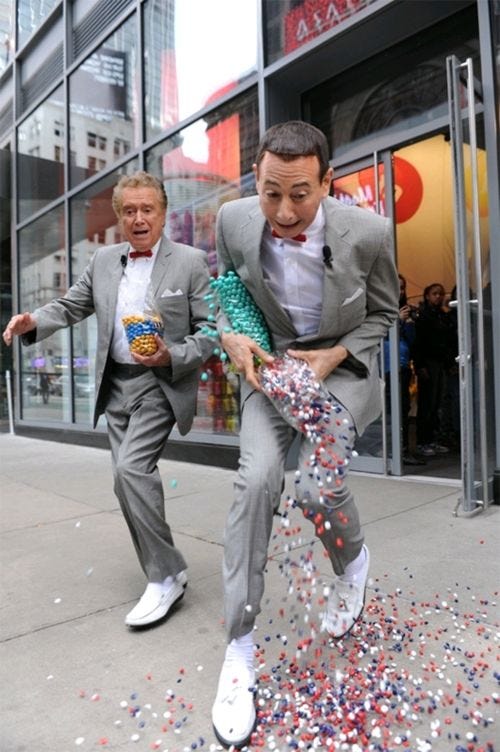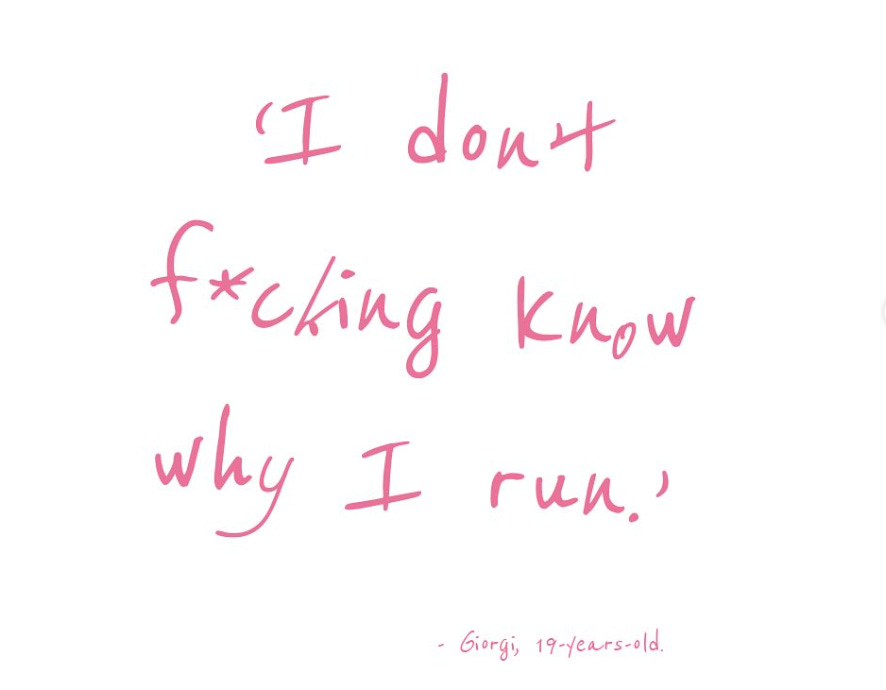Is this thing on? 🤷♂️
Three things to consider, plus weekly notes | Vol. 75
Good Morning Move Fast, Think Slow Readers!
Move Fast, Think Slow is (mostly) a weekly newsletter focused Advertising, culture, and running, written by an optimistic Ad executive. This originally started out as a newsletter focused on trends, stoicism, and culture but I’ve been pushed to refine the focus to mostly write about marketing/advertising and running.
Is that refined focus speaking to you? Should I just shut this thing off and start over? 🤣
In all seriousness, I am playing with the idea of starting another newsletter believe it or not. I have a dream of having a quarterly magazine one day and said newsletter would be an incubator for that concepts until I raise enough cash and get enough collaborators to do a version 1. Watch. This. Space!
For this week’s dispatch, I am re-posting a newsletter I dropped from earlier in the year. It was one of the most viewed dispatches, and it has quotes and ideas I find myself going back to often.
Please enjoy!
1. Intellectualism is dead - long live intellectualism an idea by Bea 🤔
This is what is at the core of this shift. Where public intellectuals once shaped cultural discourse by challenging ideas, most influential figures today shape culture by modeling a lifestyle. The Kardashians, the Jenners, and the endless legion of influencers who dictate internet micro-trends don’t engage in public debate or articulate their philosophies in essays and lectures. Instead, their ideas are embedded in the lives they project. Their impact is absorbed passively, not through engagement, but by constant exposure. - The death of the public intellectual by Bea, 4.2.25
Back in Homer’s day, people lived within an oral culture, then humans slowly developed a literate culture. Now we seem to be moving to a screen culture. Civilization was fun while it lasted. - Producing Something This Stupid Is the Achievement of a Lifetime by David Brooks, 4.10.20
Thoughts
Bea’s piece was reminiscent of the legendary / early accurate book called Amusing Ourselves to Death by Neil Postman. He wrote it in 1985. And Television is the medium that rules the day. Regardless, his findings in 2025 are still accurate in that we are no longer a literary culture, but a screen-based sound bite one. I think about how the American Revolution, was fueled by pamphlets. A time when the only way to get the message out was with the written word on the page. I think about how abolitionist were effective in putting a light onto the immorality of human bondage and slavery. By printing the written word and creating an argument via the Essay format. As Bea notes at the end of her piece “The intellectual sphere may have shifted, but it isn’t gone. We simply have to work to reclaim these spaces with people who are willing to engage deeply with ideas.” And it makes me think of Podcast and even Substack. Maybe we can reclaim a pursuit for better and an ideal moral code in these spaces. One theory that I have about Podcast continued rise in prominence is that in a world where everything is synthetic content being pumped at you ad nausem, hearing voices and conversations are the true authentic connection to narrative and a shared culture. Think about it.
2. Artisanal Advertising in the Age of AI via the brilliant Faris Yakob 🎨🤖
“So we can begin to see an outline of what might happen. Budget conscious marketers apparently want the cheapest possible services. Production costs using AI will come down and look ‘good’, so shoots will become less common. New strategies will have to be developed that reach the top ten percent. Artisanal advertising and communications planning led by craft and creative integration rather than AI will become luxury goods - but then arguably they always were. When cars replaced horses and cameras replaced portrait painters they became super luxury items for the wealthiest. Industrialization in advertising may have similar impacts.: - Artisnal Advertising by Faris Yakob, 4.11.25
Thoughts
I think anyone who is telling you they’re not worried about AI stealing their jobs is lying to your face (or to themselves). And the worry comes from all the AI hype we see in the media and in our social newsfeeds. That said, no one talks about the opposite of what already is and will continue to happen as a results of the addoption of AI in advertising and business at large. Which is, the things produced by humans will have a higher premium of price and will be seen as higher quality. Just like the luxury goods that are made by hand. The truth is, anyone who is trying to dumb down marketing to be a predictable set of modes of production doesn’t really understand humans and selling at all. They are lazy thinkers with bad ideas using the tech as a way to lie to themselves and everyone else that somehow the tool will get to better answers, and do it faster. AI is a great tool, like all of technology, but it can never replace the super powers in our brains.
3. When in doubt, listen to (marketing genius) Rory Sutherland 🎯
“Business is probabilistic, but everyone wants to pretend it deterministic. The reality is you’re placing a bet on one particular version of the future, but it’s still a bet. Marketing is a casino with pretty good odds, but it’s still a casino. And what we did as marketers we got enthralled with all the techie people and said this can exact science like as logistics, or engineering, or newtonian physics. But since we fundamentally deal with the future and human psychology, that idea that you can have all the data you need to make a robust idea…is completely unsafe.” - Rory Sutherland
“[Brand] Fame is a luck multiplier. Nassim Taleb would say that the purpose of being famous is to increase your surface area of exposure to positive upside optionality. It makes it much more likely that you will get lucky in ways that you wouldn’t expect.” - Rory Sutherland
Thoughts
These two quotes are constant battles in my line of work. First, every Chief Financial Officer and Procurement office wants Marketing to prove it’s worth, when the fact of the matter is that some things aren’t measurable. Rory does a great job highlighting examples of companies that do things that aren’t measurable but are known to be their signifying differences, such as AO Appliances delivering a little green bear to households with kids, and that it’s just a good idea that doesn’t need to be measured to prove a result. And he’s right, because not only is the entire household delighted to get their new appliance installed, but there’s an extra delightful memory thanks to the bear being given to their child while it’s happening. It’d behoove more businesses to think like this versus thinking through optimizing transactions through the filter of an Excel spreadsheet. The second battle is helping companies become more famous or even get famous for the first time. As obvious as that sounds, you’d be surprised about how many compaines are truly scared of fame. Lol marking is about growth but I guess some people prefer to play it safe and light money on fire. I don’t know I’m just trying to secure long-term revenues bro.
4. Quote of the week 🙏
“Unlike cynicism, hopefulness is hard-earned, makes demands upon us, and can often feel like the most indefensible and lonely place on Earth. Hopefulness is not a neutral position – it is adversarial. It is the warrior emotion that can lay waste to cynicism.” – Nick Cave
VISUALS OF THE WEEK
Go forth.
Stay safe.
Ride the wave.
-Mitch







